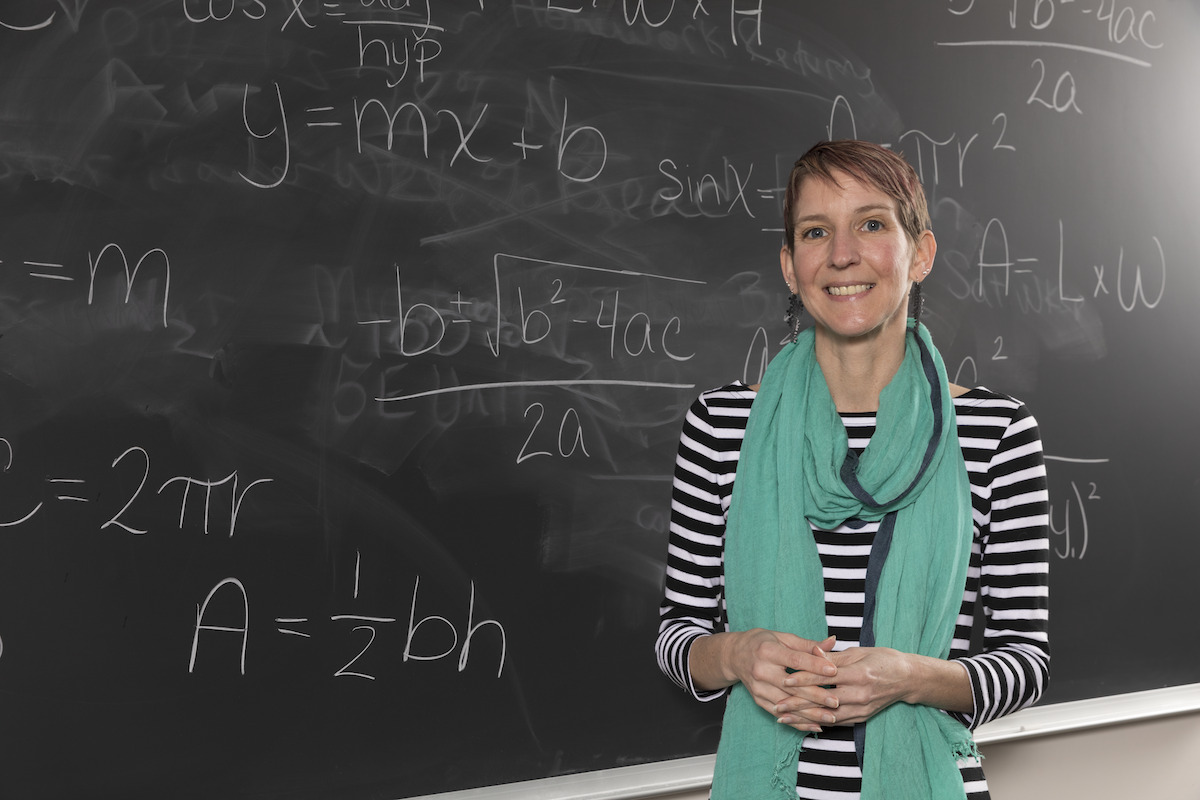$1.2 million in NSF funding awarded to Binghamton University to bring in STEM teachers
Funds will be used to train, recruit and retain secondary mathematics teachers and create jobs in the Southern Tier

U.S. Senate Majority Leader Chuck Schumer and U.S. Sen. Kirsten Gillibrand announced a $1.2 million award to bring new STEM teachers to the Southern Tier.
The initiative, titled “Preparing Prospective Secondary Mathematics Educators through a Teacher Education Program Grounded in Community, Equity and Inclusion,” aims to improve access to mathematics for diverse populations of middle and high school students. The $1,197,897 award in federal National Science Foundation (NSF) funding will recruit 24 Binghamton University 4+1 mathematics majors into secondary STEM teaching positions at middle and high schools over five years. The project will increase the number of qualified math teachers while creating stable, good-paying jobs for the area’s communities.
“When we got the grant, we were in disbelief, followed by excitement,” said Amber Simpson, associate professor and co-assistant director for the Institute for Justice and Well-Being: Advancing Equity through Community Schools and one of the co-investigators on the project, along with David Biddle, undergraduate advising liaison and lecturer. “The program requires that we work with what they label as high-needs schools. These schools met that criteria but are also great partners and collaborators with TLEL. This funding will help us continue to build upon this relationship.”
Developed through a partnership between Whitney Point Central School District, Maine-Endwell Central School District, Harpursville Central School District and the Southern Tier Master Teacher Program, Simpson and Biddle, faculty of the Department of Teaching, Learning and Educational Leadership and the Department of Mathematics and Statistics at Binghamton University, submitted a Track 1: Scholarships and Stipends (S&S) proposal to the Robert Noyce Teacher Scholarship Program.
The grant attempts to address the ongoing shortage of diverse public school teachers for an increasingly diverse student population, the historical lack of equity, access and inclusion in STEM fields and the high departure rates of math teachers in the workforce.
To achieve this, the researchers will use the funds to increase the diversity of master’s programs in secondary mathematics education (grades 7-12). Strategies include developing scholarship recipients’ engagement with community schools and their understanding of their own identities, biases and relationships to mathematics, as well as how these shape their students’ classroom experiences and learning opportunities; teaching individuals how to address issues of equity, access, inclusion and privilege within high-needs schools; and finding ways to retain Noyce recipients in the field of secondary mathematics education in high-needs schools beyond their required commitment.
“Having a good teacher makes a world of difference for our students, and this nearly $1.2 million in federal funding for Binghamton University will go the extra mile to ensure we can fill the gap in STEM teaching jobs for Southern Tier communities,” Schumer said.
The team also hopes to institute a video-based induction program, among other activities, to extend this grant beyond the next generation of mathematics teachers.
“We are implementing a mentorship program that supports our students outside of the classroom — such as a counselor, a community school coordinator or a family liaison. The goal is to enhance their understanding and engagement with community schools as secondary mathematics teachers.” Simpson said. “We’ll also be adding a new course focused on providing an after-school program around STEM concepts for middle and/or high school students. The goal of this course is to support future secondary math teachers in thinking about cultural and situational ways to engage students in mathematics through activities that promote STEM learning outside a classroom setting.”
This project will increase the number of secondary mathematics teachers prepared to teach in high-need areas, improve high school students’ math understanding and achievement and strengthen teacher-student relationships. Partnerships between academia, local school districts and educators will also be reinforced.
“By bolstering STEM education, we are ensuring our students will have access to the best of the best STEM teachers, setting our Binghamton children up for a bright future. Not only are we giving students the most important tools needed to thrive in future jobs in math, science, engineering and more, but we are also creating new, good-paying jobs in schools for recent graduates,” Schumer said. “I’m proud to announce this federal investment and will always fight to deliver the resources needed to improve educational opportunities for young New Yorkers.”

